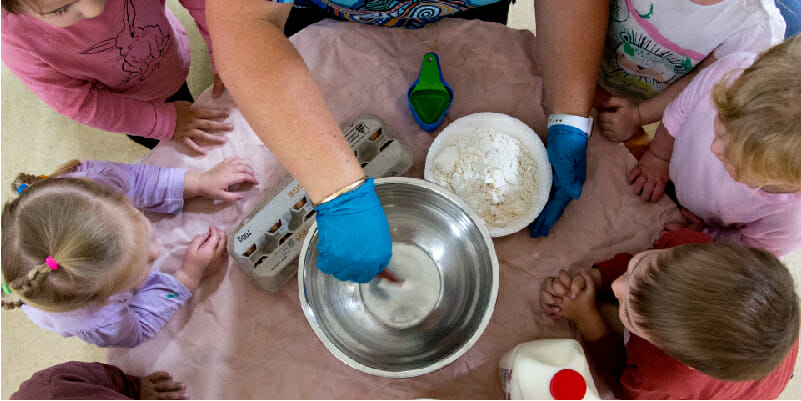
Food intolerance in preschoolers
‘The truth is, we cannot keep our child safe from food allergies or anything else out in the world without the help of community’ – this grateful mama
What is food intolerance?
Food intolerance is when the body cannot digest a particular food without having an adverse reaction to it. Symptoms of intolerance can show up within a couple of hours and up to 48 hours from eating the food.
Signs your child may have a Food intolerance
Symptoms may include any of the following:
- A sore tummy
- Diarrhea or constipation
- Swollen eyes/sneezing
- Asthma/ eczema
- Skin rash/ itching
- Bloating
- Nausea or vomiting
- Difficulty sleeping
- Sleepiness
- Difficulty to concentrate
- Headaches/migraines
- Continuous sickness caused by a lowered immune system

What is the difference between a food intolerance and an allergy?
We often confuse food intolerance with a food allergy. However, whilst an intolerance can cause short-term discomfort that affects the digestive system, an allergy is often more immediate, serious and can be life-threatening.
Behavioural issues and food intolerances in children
Food intolerance can cause all kinds of behavioural issues due to how they react in the body.
Some of these behaviours could be:
- Lack of concentration and focus – distracting others
- Irritability or anxiety
- Mood swings
- Tiredness
- Hyperactivity
- Aggressiveness
- Temper tantrums
Most common food intolerances in children
These are relatively common, such as dairy, gluten, nuts and shellfish. Others may include food colourings, flavourings and preservatives found mostly in processed foods, and the list can go on, depending on your child’s sensitivity.
What to do if your child has a food intolerance
A good way to find out if your child has a food intolerance is to keep a diary of when they display symptoms. Next, you may try to eliminate some food types that you suspect could be the culprit and gradually introduce them into your child’s diet and watch for the symptoms. You may need to do this for a few days with just one food as your child may tolerate small amounts, but when they have too much, they may experience more severe symptoms.
Other options include seeing your family doctor, arranging a blood test, or consulting an alternative health care practitioner. The main thing is to find out which foods need to be limited or removed from their diet. This may take some time to discover. Generally, if a child is sensitive to one food group, they may be intolerant to another.
The good news is that in most cases, as long as your child is avoiding foods that they are intolerant to, they won’t experience the negative effects. There are also cases where foods may be re-introduced at some point after guidance from a doctor or health practitioner.

St Joseph’s Family Services
Our centres provide Munch and Move approved meals each day for children. It’s an NSW Health initiative that supports the healthy development of children from birth to 5 years.
We regularly cater for children with food intolerances and allergies. We meet with families before enrolment to discuss dietary needs and partner with families about how we can best cater for their child’s needs. When we cook at the centre, we also cater for children with allergies, offering dairy and gluten-free options, as well as catering for other intolerances and allergies (eggs/citrus/tomatoes/etc.). We strongly discourage children from sharing their food for these reasons.
All our services are allergy aware, and we don’t use or bring any nuts into our services. Signage regarding any anaphylactic conditions, such as eggs, nuts or bananas, is in the foyer of each centre, so all staff and families are allergy aware.
For more information, please get in touch with us.







Leave A Comment